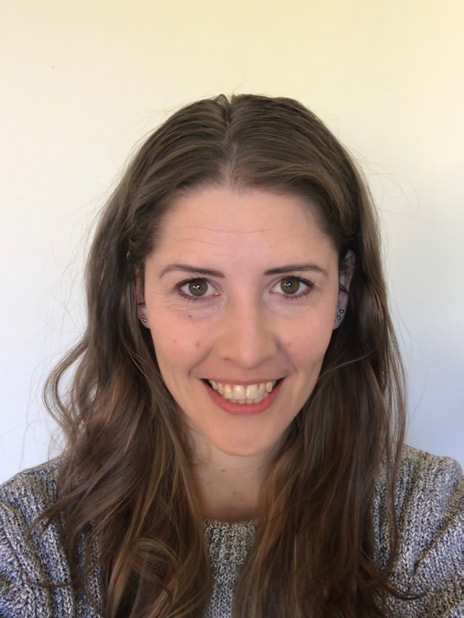As part of this year’s Speech Pathology Week (23-29 August), The Benevolent Society encourages you to recognise, celebrate, and reflect on the important work speech pathologists do to support the 1.2 million people in Australia who live with communication disability.
Speech pathologists work with people of all ages to support communication at all stages of life. At The Benevolent Society, our 52 speech pathologists support over 2,500 people across New South Wales, Queensland and South Australia.
Meet Rochelle, Senior Speech Pathologist
Rochelle completed a degree in psychology before realising that she wanted to pursue a career as a speech pathologist. After finishing her second degree, this time in speech pathology, she began working in the disability sector and has never looked back.
In her role at The Benevolent Society, Rochelle works with a lot of people through the NDIS who have complex communication needs and use an Augmentative or Alternative Communication (AAC) system rather than speaking. When asked what she loves most about being a speech pathologist, Rochelle says she “loves supporting people to get a message across by giving them the tools they need to communicate”.
"I like supporting toddlers to say their siblings’ names, school-aged children to ask someone to play with them, teenagers to feel confident to make a comment in class on the subject they’re studying at high school, and to give adults the communication supports to make choices about their work, education, and future." Said Rochelle.
"Everyone has the right to speak up for themselves."
Rochelle always makes sure her clients learn about choice and self-advocacy, which has not always been an option for people with disability. She makes sure to teach all of her client’s phrases such as ‘no’, ‘I don’t want to’, ‘that’s not correct’, ‘something else’ and ‘help’. As she puts it, “everyone has the right to speak up for themselves”.
Communicating with Confidence
This year’s theme for Speech Pathology Week is Communicating with Confidence. Our amazing speech pathologists, like Rochelle, help clients develop their confidence with a range of communication methods, such as sign, speech, and speech-generating devices.
“Communication is all about confidence,” says Rochelle. “Confidence to say what you are thinking, to stand up for what you believe in, and to raise your voice even if no one else is speaking up.”
Using a strength-based approach to her therapy, Rochelle helps her clients build confidence and skills in communication across a range of environments and with a variety of communication partners, like family, friends, teachers, or people in the community.
The Benevolent Society believes it’s essential for all Australian’s, during Speech Pathology Week and beyond, to acknowledge all forms of communication as important and valid. This includes speaking and listening, reading, writing, sign language, pictures, a dedicated AAC device, eye-gaze communication systems, switching, and any other forms of interaction. Some advice from Rochelle, if you’re unsure of the best way to communicate with someone, perhaps just start with a smile.

A photograph of Rochelle
Visit our page on Speech Pathology to learn more about our Speech Pathology services.